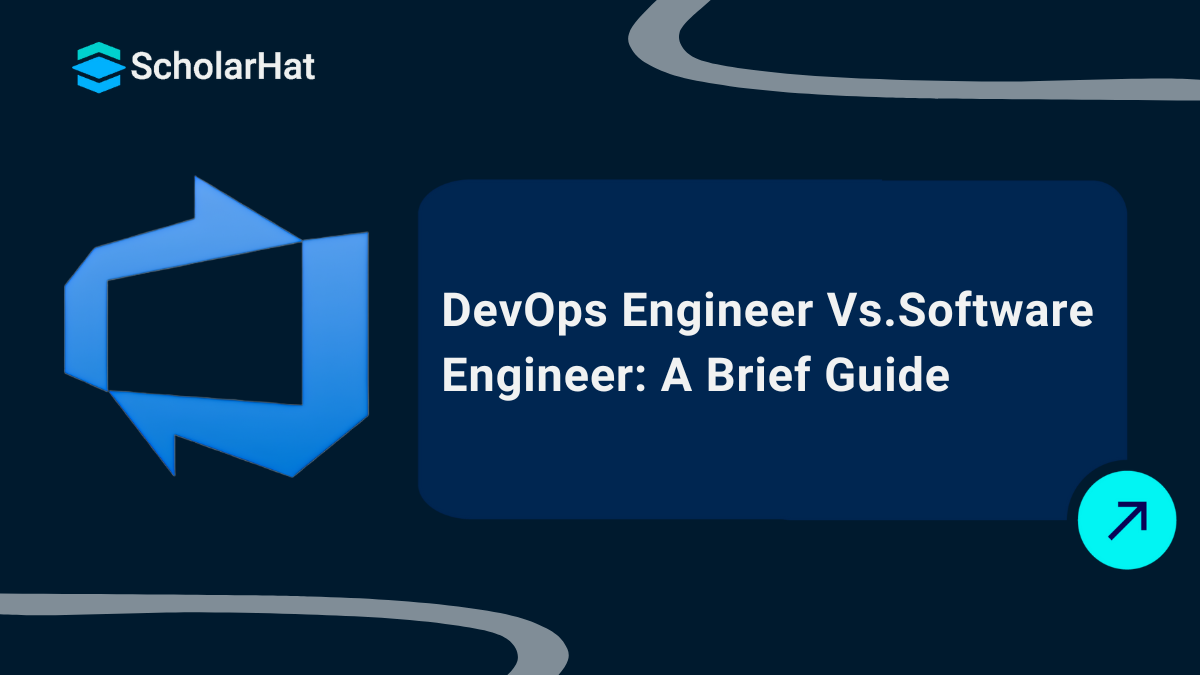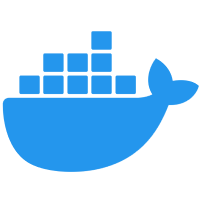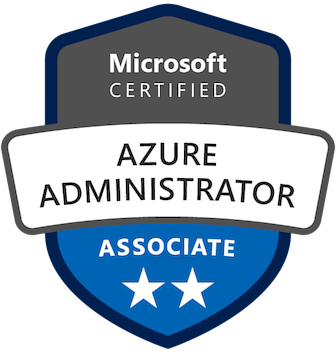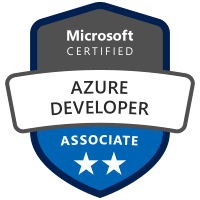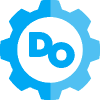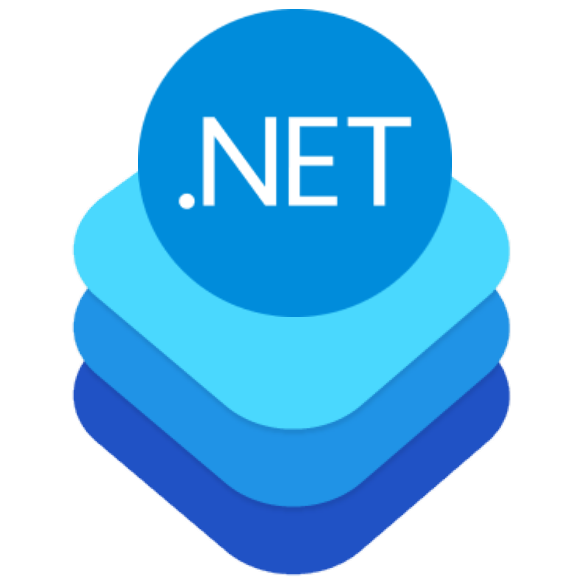DevOps vs Software Engineering: Which Path is Right for You
Software engineers focus on building, coding, and testing software applications to solve user problems.While DevOps engineers ensure faster delivery and reliability by automating workflows and bridging development with IT operations.
DevOps Engineerv/s Software Engineer is a hot topic nowadays. You're in the proper place if you're also unsure about whether to choose the software engineer or the DevOps engineer. The primary goals of a DevOps Engineer are to enhance cooperation between the development and operations teams and automate software development processes. On the other hand, creating, developing, and designing software programs is the primary emphasis of a software engineer.
This DevOps tutorial will provide you with complete guidance on the differences between a DevOps Engineer and a Software Engineer, Overlapping Skills and Responsibilities, the Career Path of a DevOps Engineer, the Career Path of a Software Engineer, Choosing Between a DevOps Engineer and a Software Engineer, and many more.
What is a DevOps Engineer?
A DevOps Engineer is someone who applies such cultural concepts, practices, and principles in real time to enhance development, operations, and other teams' cooperation. A DevOps Engineer's duties and responsibilities include combining expertise in software development and IT operations to effectively explain and execute the Software Development Life Cycle.
| Read More: |
| DevOps Architect Roadmap: How to Become A DevOps Architect |
| Azure DevOps Certification Cost: Complete Guide 2024! |
| DevOps Roadmap For Beginners 2024 |
Key Responsibilities of DevOps Engineer
Here, you will learn about the key responsibilities of a DevOps Engineer, which are as follows:
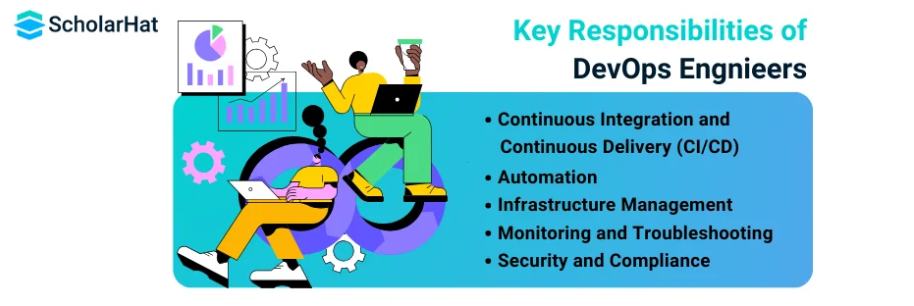
1. Implement CI/CD Pipelines
To speed up software development and deployment, DevOps engineers automate the continuous integration and continuous delivery processes.
2. Manage Infrastructure as Code (IaC)
They manage infrastructure using code, guaranteeing scalability and consistency, using technologies such as Terraform and Ansible.
3. Monitor and Log System Performance
They handle logs for troubleshooting and optimization and utilize monitoring tools to keep tabs on system performance.
4. Facilitate Team Collaboration
By facilitating communication between the development and operations teams, they increase productivity.
5. Ensure Security in Development
To keep safe settings, they include security procedures (DevSecOps) in the software development lifecycle.
| Read More: Roles and Responsibilities of a DevOps Engineer |
Skills Required for DevOps Engineer
To become a DevOps Engineer, you should also have some required skills, which are as follows:
1. Automation and Scripting
To optimize workflows, DevOps engineers require a solid foundation in automation and scripting with languages such as Python, Bash, or PowerShell.
2. CI/CD Tools
Implementing continuous integration and delivery pipelines requires expertise with systems like GitLab, Jenkins, and CircleCI.
3. Cloud Platforms
It is essential to have knowledge of cloud services such as AWS, Azure, or Google Cloud in order to manage infrastructure and deploy apps.
4. Containerization and Orchestration
For the purpose of containerizing programs and controlling their deployment across clusters, familiarity with Docker and Kubernetes is essential.
5. Infrastructure as Code (IaC)
Infrastructure is managed through code by DevOps developers who are proficient with technologies such as Terraform or Ansible.
6. Monitoring and Logging
Proficiency with logging systems (like ELK Stack) and monitoring tools (like Prometheus and Nagios) is essential for tracking performance and fixing problems.
| Read More: DevOps Engineer Skills |
DevOps Engineer Work Environment
The DevOps Engineer works in an environment that is:
1. Highly Collaborative
To optimize processes and guarantee seamless software releases, DevOps engineers collaborate with development, operations, and security teams on a regular basis.
2. Fast-Paced and Agile
DevOps engineers operate in a fast-paced, Agile or Scrum-based work environment where they must swiftly adjust to changing needs and promptly handle challenges.
3. Cloud-Based Infrastructure
DevOps engineers often manage cloud-native infrastructure and applications in cloud environments such as AWS, Azure, or Google Cloud.
4. Automation-Focused
Automation is highly valued, with DevOps engineers always striving to automate monotonous processes like software testing, deployment, and monitoring.
5. Problem-Solving Oriented
The work atmosphere promotes swift system diagnosis and resolution, guaranteeing consistent uptime and effective performance across applications.
What is a Software Engineer?
Developing and managing websites, applications, databases, and other software that is intended to help users complete tasks falls within the purview of a software engineer. He is knowledgeable in computer languages, frameworks, tools, and programming. He is capable of attending to the demands of the company and its customers.
Key Responsibilities of Software Engineer
Below are some of the listed responsibilities of a Software Engineer:
1. Collaboration with Team Members
Throughout the project lifecycle, software engineers collaborate closely with colleagues from other departments to guarantee seamless development, implementation, and problem-solving.
2. Testing and Debugging Software
They put the software through a rigorous testing process in order to find and repair flaws and make sure it functions properly.
3. Writing and Implementing Code
Software developers adhere to best practices and project criteria when writing and implementing clean, effective code.
4. Working and Managing Projects
They oversee and take part in software development projects, making sure that objectives are fulfilled and timelines are reached.
5. Deployment and Maintenance of the Deployed Software
Applications are deployed by software developers, who also maintain them by giving updates and fixing problems that arise after launch.
6. Staying Up-to-Date on the Latest Technologies
To enhance the caliber and functionality of the software, they constantly learn about new developments in technology and programming trends and adjust accordingly.
Key Skills Required for Software Engineers
To become a software engineer, the required skills are below:
1. Programming Languages
To write effective and efficient code, they need to be proficient in programming languages like Java, Python, C++, or JavaScript.
2. Problem-Solving Skills
They should possess good analytical and problem-solving skills, which are essential for identifying problems and coming up with creative fixes.
3. Version Control Systems
It is imperative that they possess knowledge of version control systems such as Git, which lets software engineers efficiently handle code modifications and work together with other members of the team.
4. Software Development Methodologies
They should be knowledgeable about waterfall, Scrum, or agile approaches to enable software engineers to operate effectively inside project frameworks.
5. Testing and Debugging Skills
Proficiency in software testing and debugging is vital to guarantee the quality and performance of the code prior to its deployment.
6. Database Management
They must be familiar with database technologies, including NoSQL and SQL, as they are crucial for maintaining and creating data storage solutions.
Software Engineer Work Environment
The software engineers work in such an environment where :
1. Collaborative Atmosphere
In order to create and improve software solutions, software engineers frequently collaborate with stakeholders, project managers, and other team members.
2. Dynamic and Fast-Paced
Software developers must swiftly adjust to shifting project needs and deadlines in their usually dynamic and fast-paced work environment.
3. Open-Office Layouts
While many software engineers work in open-office environments that encourage collaboration and communication, several businesses also offer quiet areas for concentrated work.
4. Remote and Hybrid Options
Thanks to technological improvements, software engineers may now work remotely or in hybrid environments, which allows them to balance productivity from a distance with in-office communication.
5. Continuous Learning
The area of software engineering promotes lifelong learning, and engineers frequently attend conferences, workshops, and training sessions to keep current on emerging trends and industry best practices.
6. Access to Modern Tools and Technologies
Because they often have access to the newest tools and technology, software engineers may enhance software development processes and streamline workflows.
Differences Between DevOps Engineer and Software Engineer
Let's go through some key differences between a DevOps Engineer and a Software Engineer:
1. Primary Focus
DevOps Engineer: Primarily focuses on bridging the gap between development and operations, emphasizing continuous integration, delivery, and infrastructure management to ensure smooth deployments and system reliability.
Software Engineer: Concentrates on designing, developing, and maintaining software applications, focusing on coding, testing, and implementing features according to project specifications.
2. Tools and Technologies
DevOps Engineer: Utilizes tools such as Jenkins, Docker, Kubernetes, Ansible, and cloud platforms (e.g., AWS, Azure) to automate processes, manage infrastructure, and monitor system performance.
Software Engineer: Employs programming languages (e.g., Java, Python, C++), integrated development environments (IDEs), version control systems (e.g., Git), and testing frameworks to build and validate software applications.
3. End Goals
DevOps Engineer: Aims to enhance the efficiency of development and operational processes, leading to faster deployments, increased system reliability, and reduced downtime.
Software Engineer: Strives to create high-quality, functional software applications that meet user requirements and business needs, ensuring code quality and maintainability.
4. Collaboration and Team Interaction
DevOps Engineer: Works closely with both development and operations teams, facilitating collaboration across functions to streamline workflows and enhance communication between teams.
Software Engineer: Primarily collaborates with other developers, testers, and project managers, focusing on application development and delivery while ensuring alignment with project goals.
Overlapping Skills and Responsibilities of DevOps Engineers and Software Engineers
1. Coding and Scripting
DevOps Engineer: Requires proficiency in coding and scripting to automate processes, manage infrastructure, and create deployment scripts using languages like Python, Bash, or Ruby.
Software Engineer: Involves extensive coding to develop software applications, utilizing languages such as Java, C++, or JavaScript to build features and functionality.
2. Problem-Solving Skills
DevOps Engineer: Utilizes strong problem-solving skills to troubleshoot issues related to deployments, system performance, and infrastructure management, ensuring quick resolution to minimize downtime.
Software Engineer: Applies analytical thinking to identify bugs, optimize code, and develop efficient solutions to meet user requirements and enhance software performance.
3. Collaboration
DevOps Engineer: Engages in cross-functional collaboration, working closely with development, operations, and security teams to ensure smooth workflows and effective communication throughout the software lifecycle.
Software Engineer: Collaborates with team members, including other developers, testers, and project managers, to align on project goals, share knowledge, and contribute to the overall success of software development efforts.
Career Path of a DevOps Engineer
1. Entry-Level Positions
Junior DevOps Engineer: In this role, individuals assist in automating deployment processes, managing basic infrastructure tasks, and supporting senior team members in monitoring system performance.
DevOps Intern: Interns gain practical experience by working on various DevOps tasks, learning about CI/CD pipelines, and familiarizing themselves with tools and technologies used in the field.
2. Mid-Level Roles
DevOps Engineer: At this level, professionals are responsible for implementing CI/CD pipelines, managing cloud infrastructure, and optimizing deployment processes while collaborating with development and operations teams.
Site Reliability Engineer (SRE): SREs focus on ensuring system reliability, performance, and scalability, often combining software engineering practices with operations to maintain high availability.
3. Senior-Level Roles
Senior DevOps Engineer: Senior engineers lead projects, design complex CI/CD systems, and mentor junior team members while driving best practices in automation and cloud management.
DevOps Architect: In this strategic role, professionals design and implement DevOps practices at an organizational level, overseeing the architecture of CI/CD pipelines and infrastructure.
4. Certifications and Learning Path
Certifications: Relevant certifications, such as AWS Certified DevOps Engineer, Google Professional DevOps Engineer, or Certified Kubernetes Administrator (CKA), enhance credibility and showcase expertise in specific tools and platforms.
Learning Path: Continuous learning through online courses, workshops, and industry conferences is essential to stay updated on emerging technologies, best practices, and trends in the DevOps field.
Career Path of a Software Engineer
We have described the career path for software engineers into the following categories that are:
1. Entry Level Roles
At the entry-level, software engineers typically begin their careers in positions that focus on learning and gaining practical experience. Common roles include:
- Software Engineer I / Junior Developer: Responsible for writing code, debugging, and testing software applications. They work under the guidance of more experienced engineers and are often involved in small projects or specific tasks within larger projects.
- Intern / Co-op Positions: Many software engineers start as interns or co-op students. These roles provide hands-on experience in a real-world environment, allowing individuals to apply their academic knowledge and learn from professionals.
- Quality Assurance (QA) Engineer: Entry-level QA engineers focus on testing software products to ensure they meet quality standards. They may perform manual testing, write automated test scripts, and report bugs.
2. Mid-Level Roles
As software engineers gain experience and develop their skills, they can progress to mid-level roles that require more responsibility and leadership:
- Software Engineer II / Developer: In this role, engineers take on more complex projects, often mentoring junior engineers. They may also have input in the design and architecture of applications.
- Full-Stack Developer: Mid-level full-stack developers have a broad skill set, enabling them to work on both front-end and back-end development. They can manage the entire software development lifecycle.
- DevOps Engineer: These engineers focus on the collaboration between software development and IT operations. They work to streamline processes, automate deployment, and improve system reliability.
3. Senior-Level Roles
Senior-level positions involve leadership, strategic thinking, and a significant level of expertise:
- Senior Software Engineer: Senior engineers lead projects, mentor junior team members, and are responsible for the overall architecture of applications. They often interact with stakeholders to understand business needs.
- Technical Lead / Tech Lead: In this role, the engineer oversees a team of developers, making technical decisions and ensuring project timelines are met. They act as a bridge between the development team and management.
- Software Architect: Software architects design the high-level structure of software systems. They focus on scalability, performance, and maintainability, often leading discussions on technology choices and best practices.
4. Certifications and Learning Path
Continuous learning and obtaining relevant certifications can enhance career prospects. Some popular certifications and learning paths include:
Certifications:
- AWS Certified Developer: Validates skills in developing and maintaining applications on the AWS platform.
- Microsoft Certified: Azure Developer Associate: Demonstrates proficiency in Azure cloud services and solutions.
- Certified ScrumMaster (CSM): Provides knowledge of Agile methodologies and Scrum practices, which is beneficial for working in Agile teams.
Learning Paths:
- Online Courses: Platforms like Coursera, edX, and Udacity offer courses on various programming languages, frameworks, and technologies.
- Bootcamps: Coding bootcamps provide intensive training in specific technologies or programming languages, often focusing on practical skills.
- Open Source Contributions: Participating in open-source projects can help build experience, showcase skills, and network with other professionals.
Salary Comparison of DevOps Engineer and Software Engineer
1. Salary of DevOps Engineer
India:
- Entry Level (0-2 years): ₹6-9 LPA (Lakhs Per Annum)
- Mid-Level (2-5 years): ₹12-20 LPA
- Senior-Level (5+ years): ₹20-40+ LPA
US:
- Entry Level: $90,000 - $110,000 annually
- Mid-Level: $120,000 - $140,000 annually
- Senior-Level: $150,000 - $200,000+ annually
DevOps engineers often command higher salaries than software engineers due to their broader skill set, which includes development, operations, and system administration.
2. Salary of Software Engineer
India:
- Entry Level (0-2 years): ₹4-8 LPA
- Mid-Level (2-5 years): ₹10-18 LPA
- Senior-Level (5+ years): ₹20-30+ LPA
US:
- Entry Level: $80,000 - $100,000 annually
- Mid-Level: $110,000 - $130,000 annually
- Senior-Level: $140,000 - $180,000+ annually
Software engineers’ salaries are high, especially in industries like tech and finance, but may be lower compared to DevOps engineers in companies prioritizing automation and infrastructure.
3. Salary Growth Prospects
DevOps Engineer:
- Salary growth in DevOps is strong due to the high demand for continuous integration/continuous deployment (CI/CD), cloud services, automation, and orchestration tools like Kubernetes and Docker.
- Growth can also be driven by cloud certifications (e.g., AWS, Azure) and experience with infrastructure-as-code (e.g., Terraform).
- With more companies adopting DevOps practices, growth prospects are promising.
Software Engineer:
- Software engineers also see significant salary growth, particularly if they specialize in high-demand technologies like AI andML, blockchain, or mobile app development.
- Growth prospects improve with proficiency in full-stack development, frameworks like React and Angular, and expertise in various programming languages.
- Companies focusing heavily on product development and innovation often provide higher salaries and promotions.
Choosing Between DevOps Engineer and Software Engineer: What’s Right for You?
When choosing between becoming a DevOps Engineer or a Software Engineer, it's essential to consider several key factors. Here's a detailed comparison based on crucial aspects:
1. Interest in Automation vs. Coding
- DevOps Engineer: If you are passionate about automation, system optimization, and ensuring that software development pipelines run efficiently, DevOps may be more suitable. DevOps engineers focus on automating deployment processes and infrastructure management and integrating tools like Jenkins, Docker, and Kubernetes.
- Software Engineer: If you prefer spending most of your time on coding, designing, and developing applications or systems, software engineering is a better fit. Software engineers work on writing and maintaining code in various programming languages (e.g., Python, Java, JavaScript) to build applications and solve specific problems.
2. Career Flexibility and Growth
- DevOps Engineer: DevOps roles offer flexibility across different industries, particularly in cloud computing, IT operations, and large-scale deployment environments. There are also opportunities for growth in roles like Site Reliability Engineer (SRE) or Cloud Architect, making it attractive for those interested in infrastructure and operations.
- Software Engineer: Software engineering offers broad career flexibility in terms of specializations. You can move into fields like mobile app development, AI/ML, data science, or full-stack development. Software engineers can also transition into product management, engineering leadership, or technical roles like Software Architect.
3. Work-Life Balance
- DevOps Engineer: Work-life balance can sometimes be challenging for DevOps engineers, especially if they are responsible for 24/7 systems. You may be on-call for infrastructure failures or deployment issues, making after-hours work more common. However, in well-organized environments, work-life balance is improving with better tooling and automation.
- Software Engineer: Software engineers typically have a more structured work schedule, though it can vary depending on deadlines and projects. Their work is more predictable and has fewer emergencies than DevOps, but this can depend on the organization and industry.
4. Job Market and Demand
- DevOps Engineer: The demand for DevOps engineers is rapidly growing as more organizations adopt DevOps practices to improve their software development life cycles. Skills in cloud platforms like AWS, Azure, and experience with CI/CD pipelines are highly valued, making this a hot market.
- Software Engineer: Software engineering remains a high-demand field, with opportunities across nearly every industry. The market demand is particularly strong for engineers skilled in full-stack development, AI, and data analytics. While the competition can be high, the range of industries hiring software engineers ensures steady demand.
5. Transitioning from One Role to Another
- DevOps Engineer to Software Engineer: Transitioning from DevOps to software engineering is possible but may require upskilling in programming and software design. The knowledge of automation and infrastructure management may give you an advantage in roles that focus on backend development or system architecture.
- Software Engineer to DevOps Engineer: Software engineers can transition into DevOps by gaining expertise in cloud platforms, containerization, and infrastructure automation tools. The shift involves learning more about systems administration, networking, and deployment processes.
| Aspect | DevOps Engineer | Software Engineer |
| Focus Area | Automation, deployment, CI/CD, system reliability | Design, development, and testing of software applications |
| Primary Role | Streamline development and operations, manage infrastructure, and automate deployments | Write and maintain code, build software systems, and applications |
| Tools & Technologies | Jenkins, Docker, Kubernetes, Ansible, AWS, Azure | Java, Python, C++, JavaScript, SQL, IDEs |
| Collaboration | Works closely with both development and IT operations teams | Works primarily with other software developers and project managers |
| Average Salary (India) | ₹7 – ₹14 LPA (varies by experience & location) | ₹5 – ₹12 LPA (varies by experience & location) |
| Career Path | DevOps Architect, Site Reliability Engineer, Cloud Engineer | Senior Developer, Software Architect, Engineering Manager |
Future of DevOps Engineering and Software Engineering
1. How the Roles Are Evolving
- DevOps Engineer: The role of DevOps is evolving to focus more on automation, AI-driven operations, and cloud-native technologies. DevOps engineers are becoming essential for improving efficiency in the software delivery pipeline and ensuring system resilience in increasingly complex environments.
- Software Engineer: Software engineering is seeing an evolution toward AI/ML integration, cloud-based development, and low-code/no-code platforms. Engineers are now expected to develop more scalable, resilient, and secure applications while also working closely with operations teams.
2. Convergence of Roles
The boundary between DevOps and software engineering is blurring, with both roles increasingly working together. Software engineers are adopting DevOps practices like CI/CD and infrastructure-as-code, while DevOps engineers are required to have a deeper understanding of software development. This convergence is leading to the rise of full-stack DevOps engineers who can handle both development and operations.
3. Future Skills to Learn
- DevOps Engineer: Future skills include Kubernetes, serverless architecture, AI for IT operations (AIOps), and advanced knowledge of cloud platforms like AWS, Azure, and Google Cloud. Understanding security automation (DevSecOps) is also crucial as cybersecurity becomes more integrated into DevOps workflows.
- Software Engineer: Learning AI/ML, blockchain, and quantum computing will be key for software engineers. Expertise in cloud-native development, microservices, and cybersecurity will also be essential for staying relevant as more applications are built with scalability, security, and distributed architecture in mind.
| Read More: |
| DevOps Interview Questions and Answers |
Conclusion
In conclusion, we have discussed all the aspects related to DevOps Engineer v/s Software Engineer. All of them have separate fanbases where people are working, and many learners are willing to follow and make a career on a particular path. So it depends upon you and your capabilities. To enhance your knowledge, ScholarHat provides Microsoft Azure Cloud Architect Trainingand Azure DevOps Certification Coursefor better understanding.
FAQs
Take our Devops skill challenge to evaluate yourself!

In less than 5 minutes, with our skill challenge, you can identify your knowledge gaps and strengths in a given skill.

